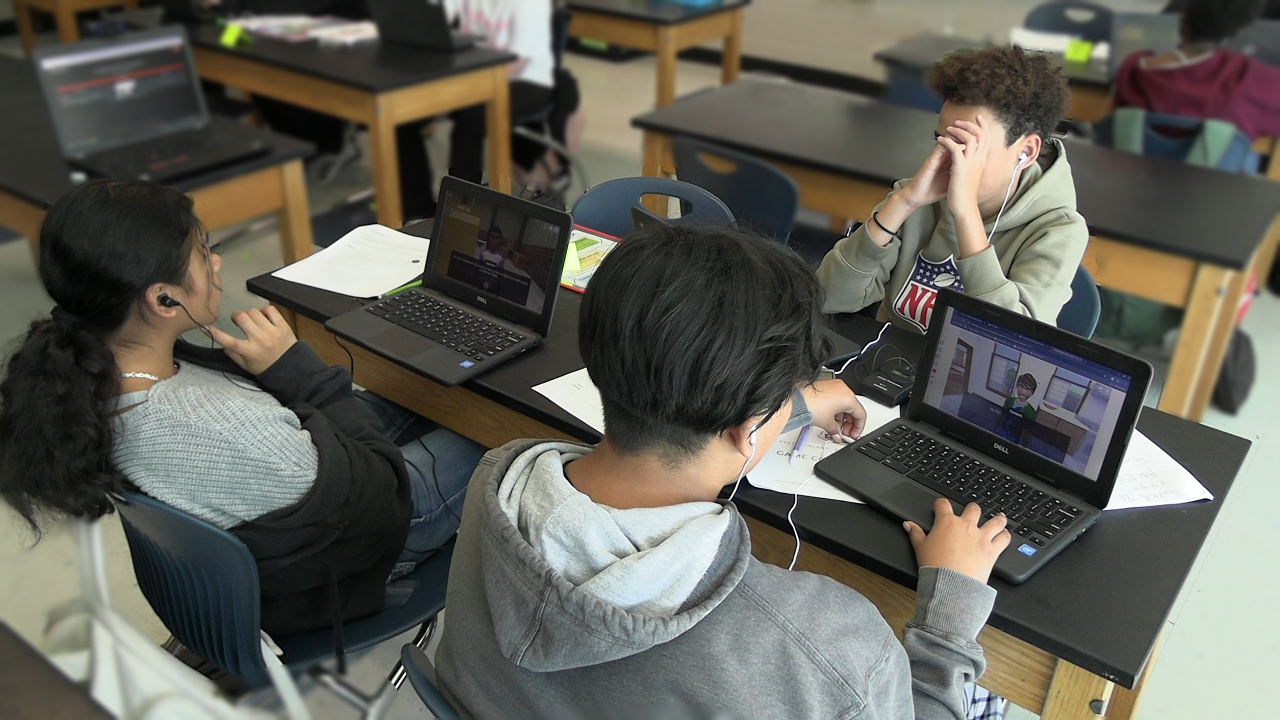Pedagogy First in a Digital World
Educators face the challenge of seamlessly integrating technology into their classrooms while maintaining expertise in their subject matter. Skilled educators who embrace the Technological Pedagogical Content Knowledge (TPACK) framework, combining content, pedagogical and technological knowledge, often find tension between using new technologies to enhance curriculum and ensure learning remains the central focus. As educational leaders, we must foster ongoing conversations with teachers about their pedagogical approaches when using educational technology (edtech) tools, including artificial intelligence (AI). While these tools can transform student learning, without thoughtful implementation, they can lead to passive technology consumption or learning experiences that may not advance overall instructional goals.
AI continues to rapidly expand areas of exploration and transformation for teachers. Although many promote AI as a time-saver, it is crucial to remember that educators’ expertise is essential when using AI to create classroom materials. A 2025 University of Pennsylvania study revealed “significant limitations” in AI-generated lesson plans. The study noted, “These lesson plans often follow repetitive, teacher-centered patterns that restrict opportunities for students to make choices and take meaningful actions in their learning.” Far from fostering student-centered classrooms, AI tools frequently structure lessons around teacher-centered “sit and get” strategies that minimize key learning opportunities, like student dialogue. Without the expertise of educators skillfully customizing the prompts and outputs from AI tools, algorithms center the teacher in the learning experience, creating lesson plans that do little to create dynamic learning experiences where learners are actively engaged in the learning process.
Human in the Loop
These findings highlight the critical importance of educator expertise and a strong pedagogical focus when developing AI-generated lesson plans and using instructional tools. While edtech and AI can support teachers and students, teachers must use their knowledge and understanding to craft materials that best meet their students’ needs. The idea that teachers need to use their skills to hone AI products underscores the value of a “human in the loop.” The “Teacher in the Loop” is vital for effective AI use in the classroom, designing tools and lessons that are aligned to student needs and learning goals. For instance, teachers skilled in AI use in their classrooms can use data from an AI-based tutor to help make real-time corrections to student misconceptions. They can also evaluate whole class trends in the moment to intervene if students are struggling with a concept and need redirection. Using data from these AI tutoring programs, educators can adjust instruction for future lessons to ensure students receive the instruction that is right for them.
Similarly, the “Leader in the Loop” is essential for helping educators understand their role in this evolving landscape, partnering to ensure AI complements educators’ experience. Approaches like the M.A.Z.E. method, developed at the Friday Institute for Educational Innovation, can provide a starting point for evaluating classroom tools. Skilled leaders can also help teachers assess the instructional role of a tool within their specific classroom context, analyzing whether it addresses the learning needs of the students or if there are pedagogical adjustments educators should make to ensure learning outcomes are more in line with instructional goals.
The Role of Coaching
“Be curious, not judgmental” can be a foundational principle in impactful instructional coaching. Curiosity paired with active listening fosters open dialogue, inviting teachers to share their insights, plans and values regarding instructional decisions. This open conversation leads to greater understanding and a collaborative approach, centering learners’ needs in instructional decision-making. Taking a curious stance with teachers as they explore technology helps create an environment where teachers can innovate while remaining focused on essential content learning.
Coaching Questions for Pedagogy-First EdTech and AI Integration
Here are some questions to spark conversations about the pedagogical strategies, content focus and technology integration educators might use in their classrooms. These questions can help instructional coaches, administrators and other educational leaders open a dialogue about the role of AI and technology in their schools and districts.
Instructional Strategy
- How will this tool fit into or enhance the instructional strategy you have selected? (e.g., collaborative learning, inquiry-based learning, direct instruction)?
- How does this tool increase student-led learning, creativity or critical thinking?
- How might you monitor student engagement and understanding using the tool?
- How does using the tool facilitate active learning or student creation?
- How might you minimize passive consumption with the tool or instructional strategy?
Deep Content Understanding
- How might this tool help students engage more deeply with the content? What strategies can you use to maximize this engagement?
- How does this technology help students make connections between different parts of the curriculum or other disciplines?
- How are students showing their mastery of content using the tool? How might the tool change how you evaluate their performance?
Curriculum Enrichment
- How does this tool provide opportunities to explore the curriculum in ways that would not be possible without it?
- In what new ways does this tool enable students to create, analyze or synthesize curriculum content?
- How might you infuse opportunities to engage with primary sources, simulations or virtual experiences related to your curriculum?
- How does this tool help bridge the gap between classroom learning and real-world relevance for the curriculum?
Ethical Evaluation
- What opportunities does this tool provide for students to critically evaluate information or perspectives related to the curriculum?
- How will you guide students to understand the limitations or biases inherent in the outputs?
- What opportunities exist to discuss the ethical implications of the content or the technology itself within the curriculum?
- How will you model transparency in AI use and help students understand the times when AI is appropriate and when it is inappropriate?
Edtech and AI are constantly evolving. Engaging students with these tools and ways of thinking is crucial for their future. Creating an environment where learning comes first and technology is intentionally leveraged to advance specific knowledge and skills ensures students will be deeply engaged. The Digital Learning team at the Friday Institute empowers educators to harness the potential of artificial intelligence and other emerging technologies. We provide the essential tools and skills to not only advance AI literacy but also to center the learning needs of every student. Discover how you can transform your classroom by visiting our team page.

*This post was created with assistance from AI for brainstorming and clarifying ideas and not as an original source.
- Categories:


